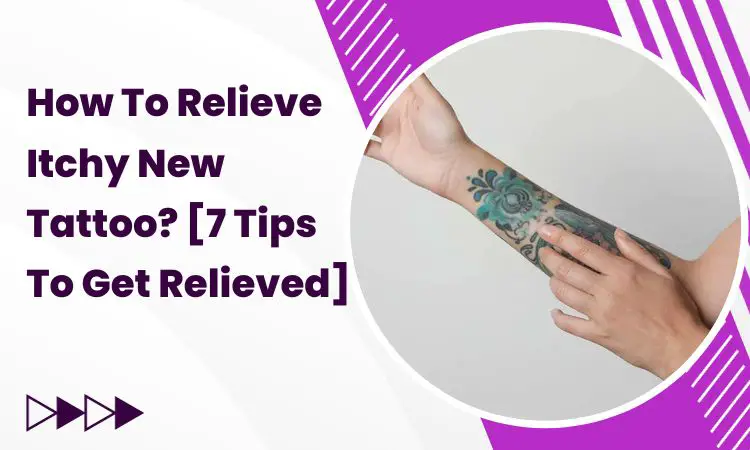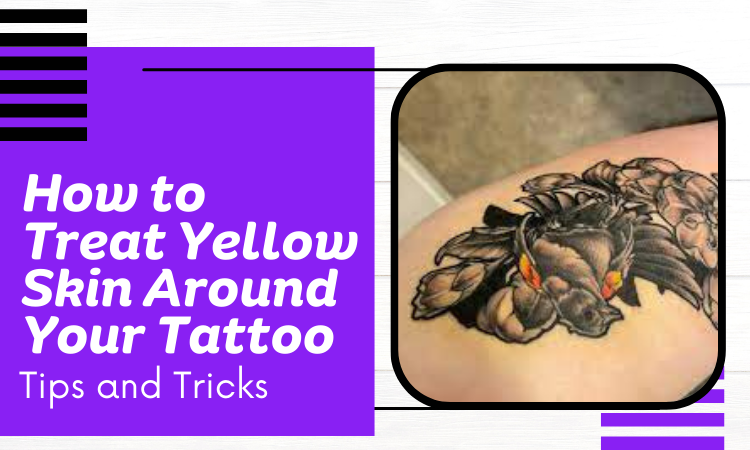How To Relieve Itchy New Tattoo? [7 Tips To Get Relieved]
To relieve itchy new tattoo, here are the 7 tips you can follow:
- Keep the tattoo moisturized and clean
- Use ointments for tattoo
- Apply a cold compress
- Take antihistamine
- Limit sun exposure
- Take medicine for the skin condition
- Seek medical help for persisting problem
Follow the article to learn more about the ways to relieve itchy new tattoos. Also, get to know what to avoid while in the healing stages of tattoos.
Key Takeaways
- Itchy new tattoos are a normal part of the healing process.
- There are a number of things you can do to relieve itching, such as keeping the tattoo moisturized, applying a cold compress, and taking an antihistamine.
- Avoid scratching the tattoo, as this can damage the healing skin and lead to infection.
- Protect the tattoo from sunlight and tight clothing.
- If the itching is severe or persists, see a doctor or tattoo artist.
Ways To Relieve Itchy New Tattoo

Here are 7 ways to relieve itchy new tattoo:
Keep The Tattoo Moisturized And Clean
Tattoos normally get itchy When the area of the skin gets dry. Therefore it’s important to keep skin moisturized.
Keep skin safe from drying out by gently washing the new tattoo with mild soap and warm water. Then, pat the area with a clean, soft towel, or let it air dry.
Use Ointments Over The Tattoo
Apply a thin layer of fragrance-free lotion or ointment to moisten the skin. This step can help prevent the skin from drying out and becoming itchy.
There are a number of aftercare moisturizers that can help relieve itching, such as Aquaphor and First Aid Ointment.
Make sure to follow the instructions on the package carefully, and avoid using these products if you are allergic to any ingredients.
Apply A Cold Compress
Placing a cold compress on the tattoo can help to reduce swelling and helps to relieve itchiness. Wrap a few ice cubes in a clean cloth and apply it to the application area for a few minutes. And this will help to relieve a new tattoo from itching.
Take An Antihistamine
If you’ve applied all the above things, but still the itching is severe, you may need to take some tablets for instant relief, such as diphenhydramine (Benadryl) or loratadine (Claritin). These medications can help reduce inflammation and relieve itching.
Note: Please consult with your medical advisor before taking these tablets.
Limit Sun Exposure
Itchiness in your tattoo can occur because of sun allergy. So, if you limit your exposure to the sun, you can avoid itchiness. It is not only good for itchiness, but also good for sustaining your tattoo for a long time.
But if you have to go outside during the day, make sure that you apply sunscreen of at least SPF 30. Also, make sure to cover your new tattoo.
Medicine For Skin Conditions
If you have pre-existing skin conditions like eczema, the itchiness in your tattoo will increase. In such cases, consult a medical professional for your skin condition. They will prescribe medicines that will help you relieve the itchiness and calm your skin down.
Take Medical Help
If you see your tattoo is infected you need to seek medical help. If you are facing severe allergic reactions seek emergency care.

Things To Avoid During The Healing Process
It’s important to follow your tattoo artist’s aftercare instructions to ensure the proper healing of your new tattoo. Here are some general guidelines you should avoid:
Avoid Scratching
It’s a natural reaction to scratch a new tattoo when you feel itching. However, this can damage the approach of body art and healing skin.
And ultimately, it can cause a skin infection. Therefore, instead of scratching the skin, try to resist the urge to scratch and use a moisturizer to help relieve the itching
Avoid Exposing The Sun To The Tattoo
UV rays of the sun are harmful to a new ink design in many ways. It can cause a tattoo to fade quickly and irritate the healing skin.
Therefore, first, you should avoid directly going into the sunlight. Or it would be best if you kept the tattoo covered with sunscreen and out of direct sunlight until it has fully healed
Avoid Wearing Tight Clothing
Wearing tight clothing over a new tattoo can irritate the skin and worsen the itching. Even it can damage the appearance of the new ink design, and your clothes can be a victim of ink.
Although getting tattoo ink out of cloth is easy, you should still avoid it. For this, try to wear loose-fitting, breathable clothing instead.
Note: It’s important to remember that feeling itchy on the skin is a normal part of tattoo healing. However, if the itching persists or becomes severe, or if you notice any redness, swelling, or discharge from the body art. In such a case, you should contact your tattoo artist or a healthcare provider for further advice.
Here is a visual guide for an itchy new tattoo
Frequently Asked Questions (FAQs):
Why Are Tattoos Itchy?
Tattoos can be itchy due to several factors. During the tattooing process, the needle punctures the skin, causing small wounds that release histamines. This in turn then lends to itching. As the tattoo heals, the skin forms a scab, which can further contribute to itching. This itching typically occurs over 2-3 days as part of the natural healing process.
How Long Does The Itching Last After Getting A Tattoo?
Itching normally can last for several days or even a few weeks after getting a tattoo. The initial itching should subside within a few days of getting it. However, some people may experience itching for extended periods, especially if they have sensitive skin or if their tattoo is in a susceptible area. If the itching becomes severe or persists for an extended period, you must contact your tattoo artist or a healthcare professional for advice.
Is It Normal For The Itching To Spread Beyond The Tattooed Area?
Yes, it is normal for the itching to spread beyond the tattooed area. This happens because the body responds to the itchiness and releases histamine. So, these affect the surrounding areas.
Closing Words
So, to relieve the itchiness of the tattoo you should follow several aftercare steps and take some precautions. Make sure to keep your tattoo dry and moisturized. Avoid exposure to water and sun for the first few days and protect your tattoo properly.






